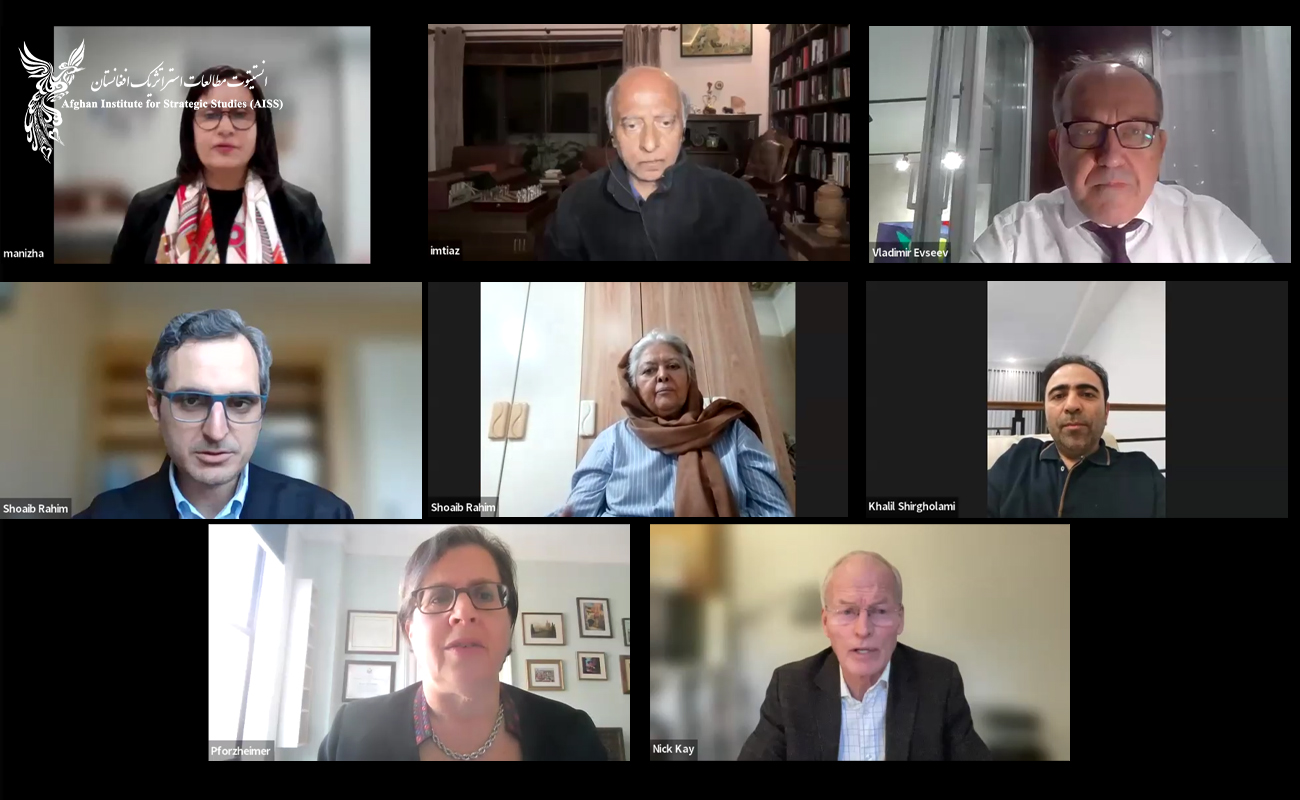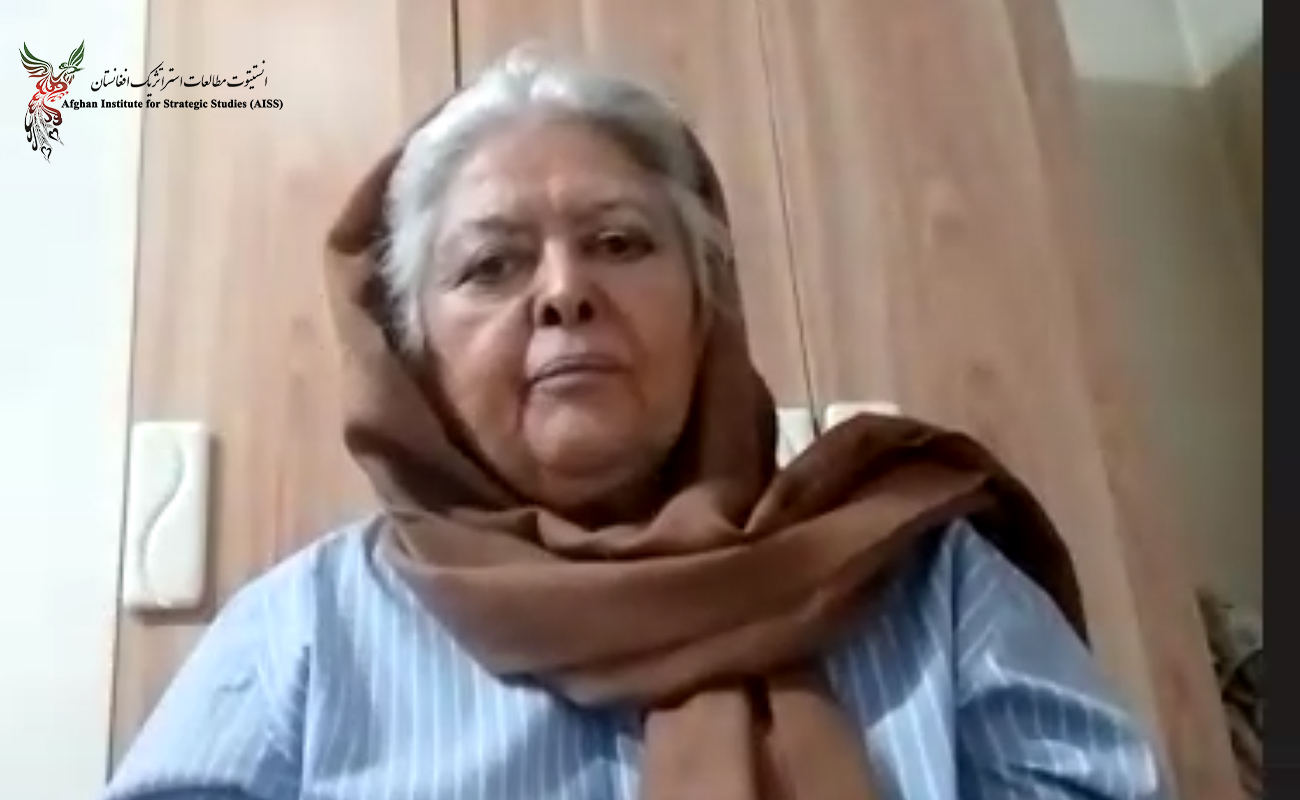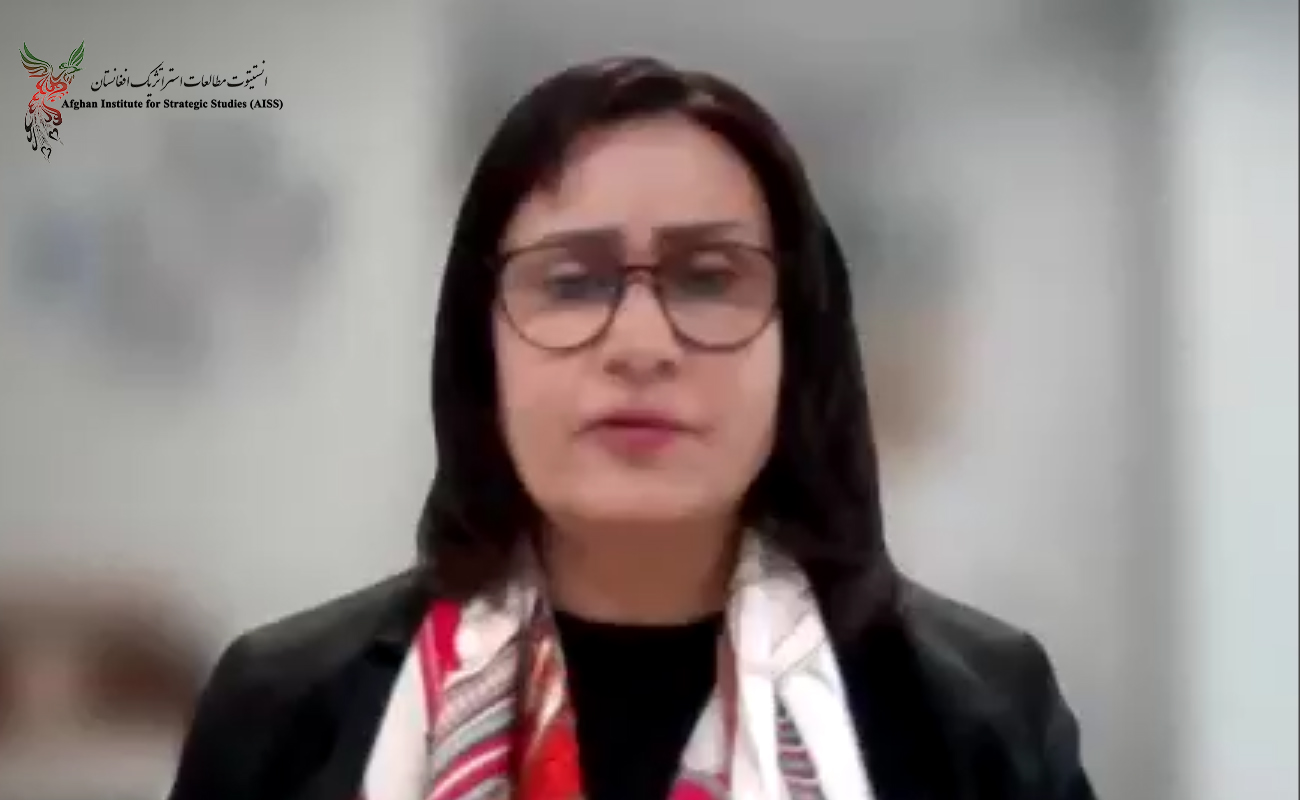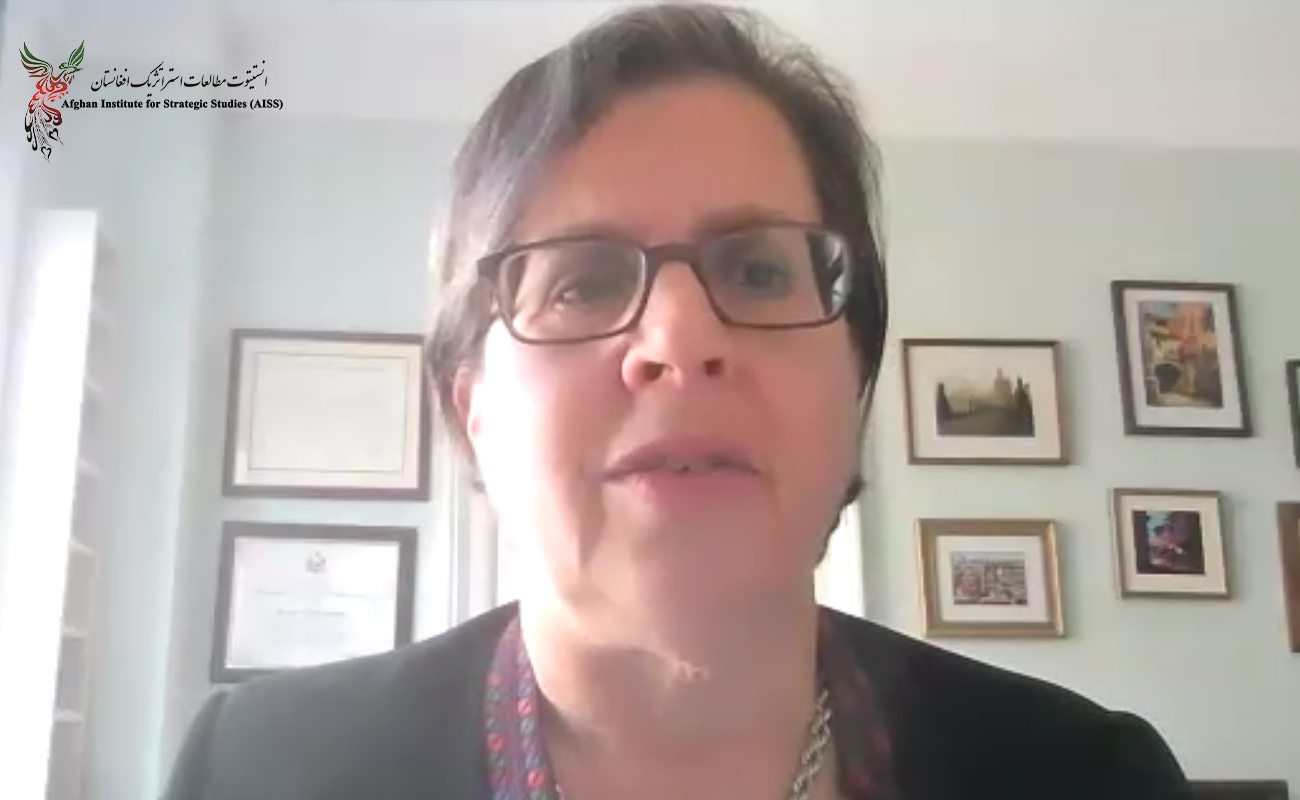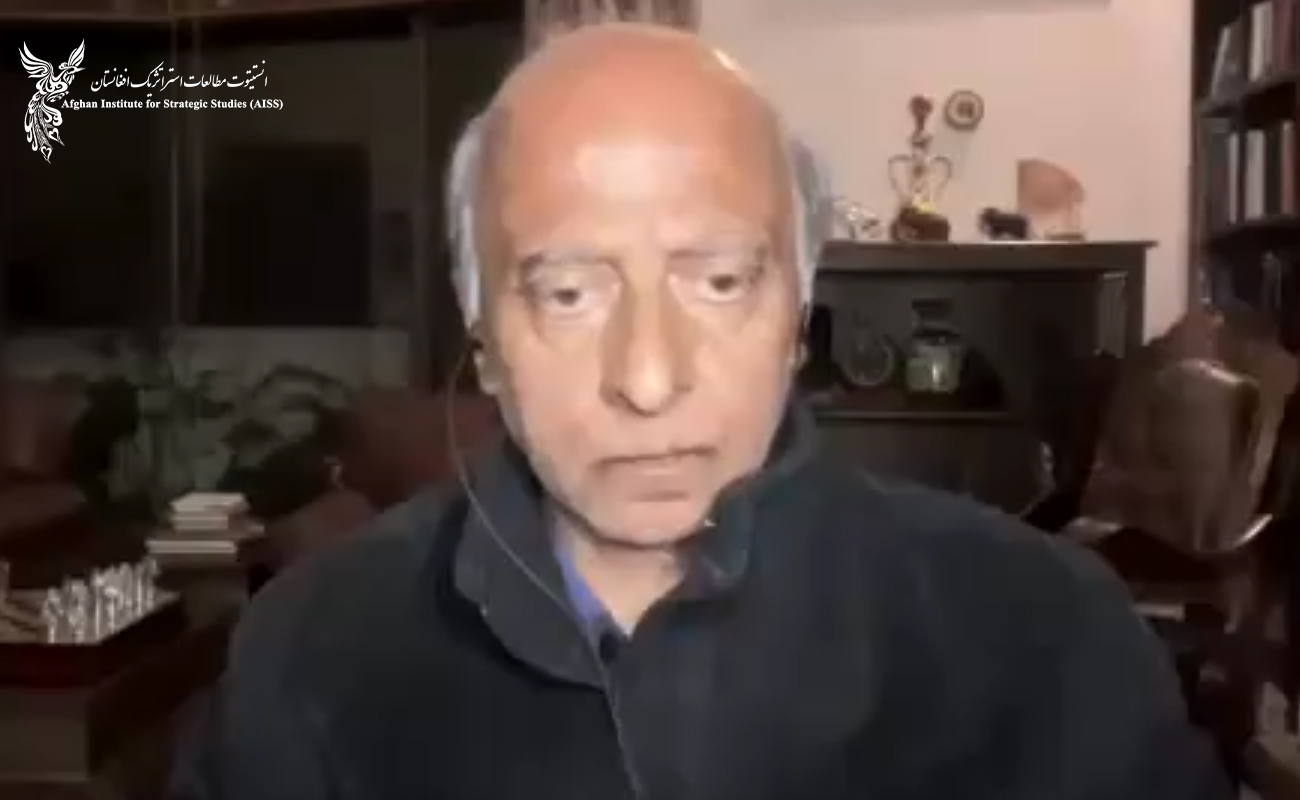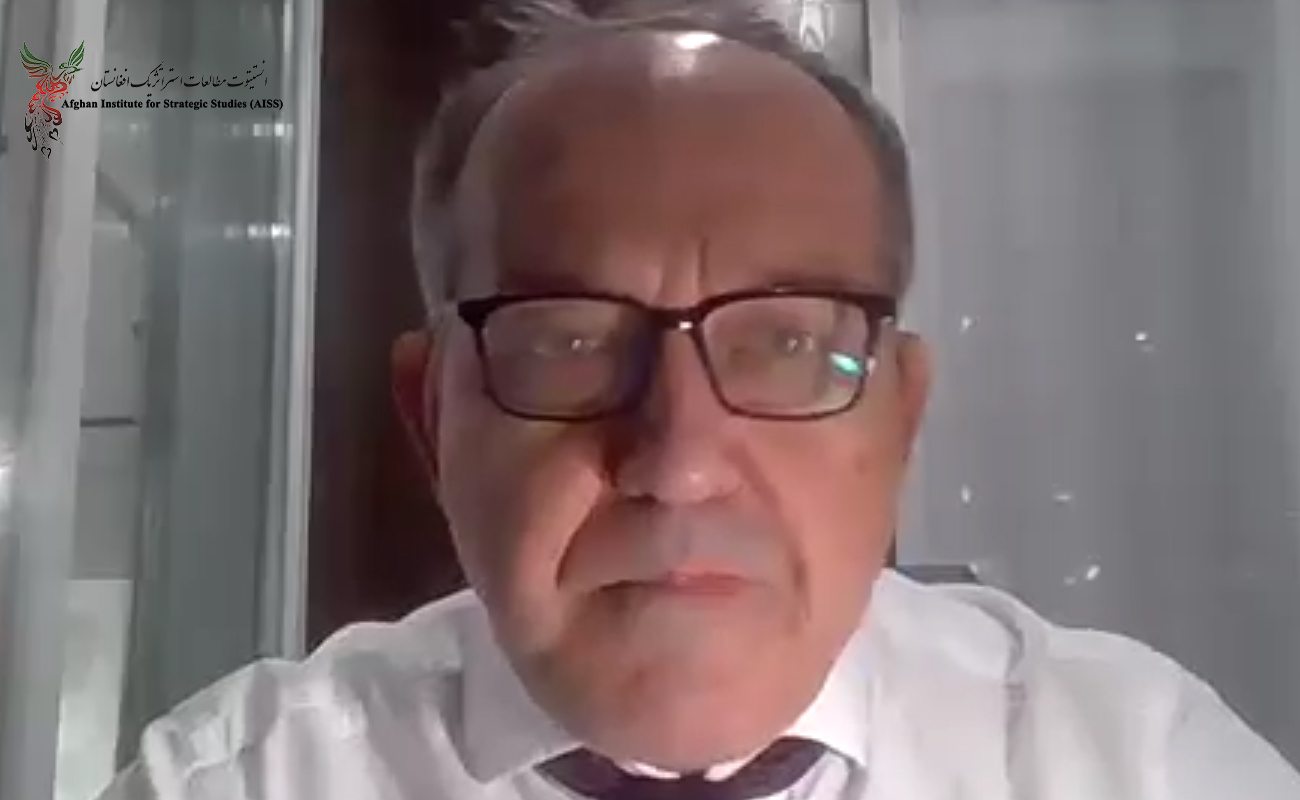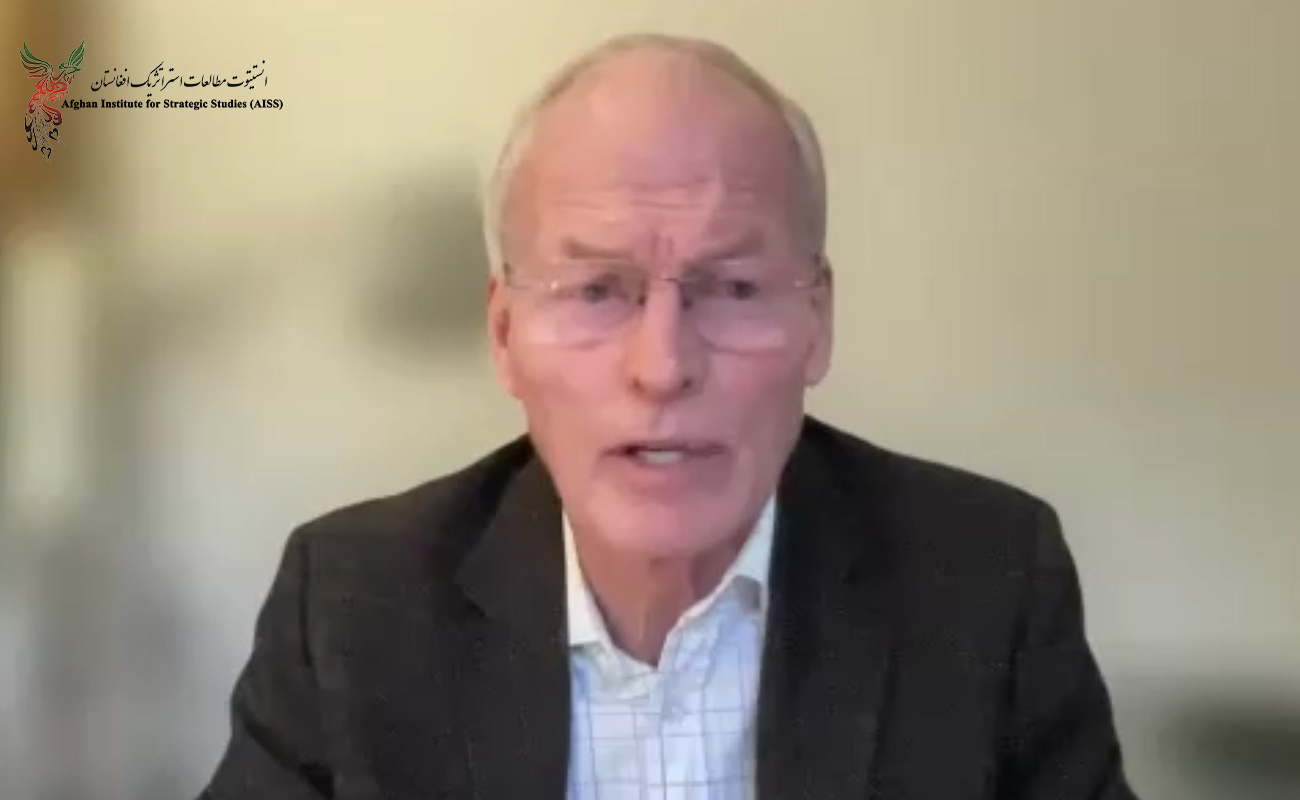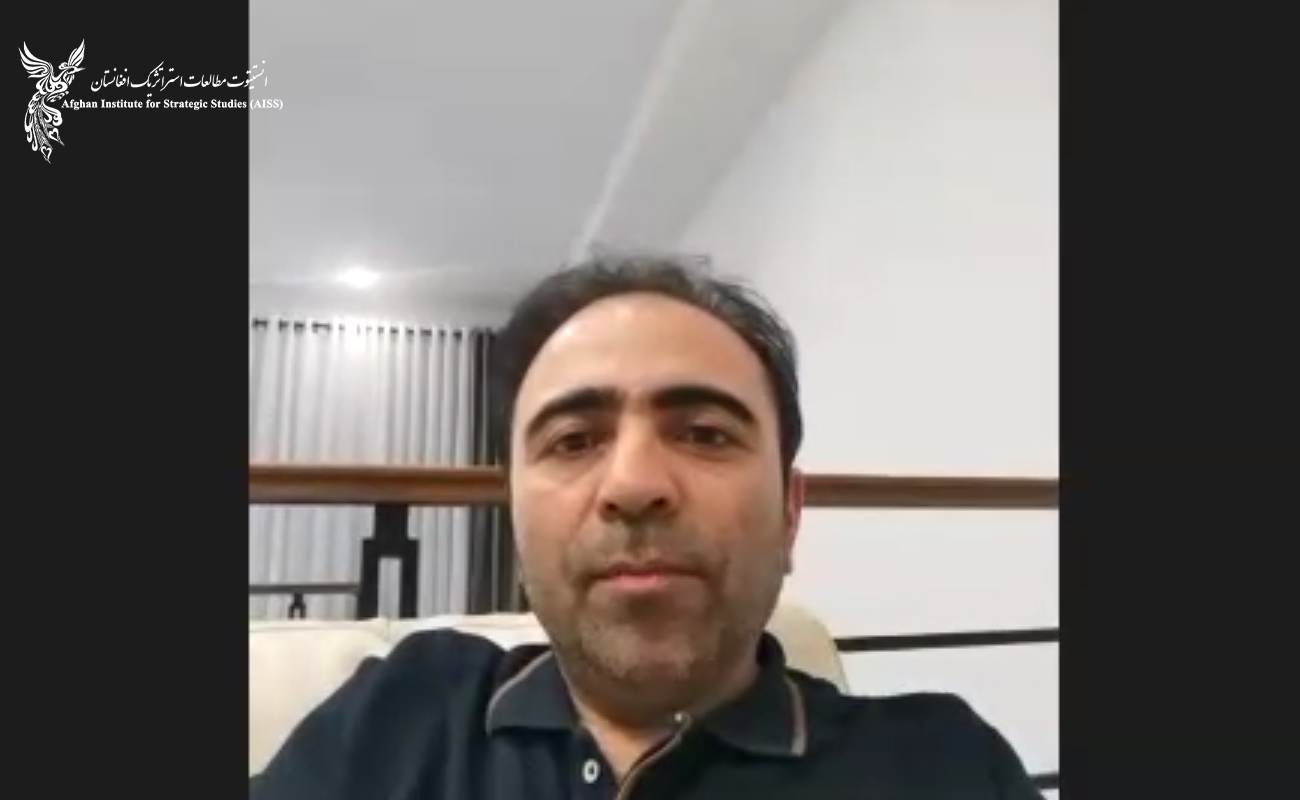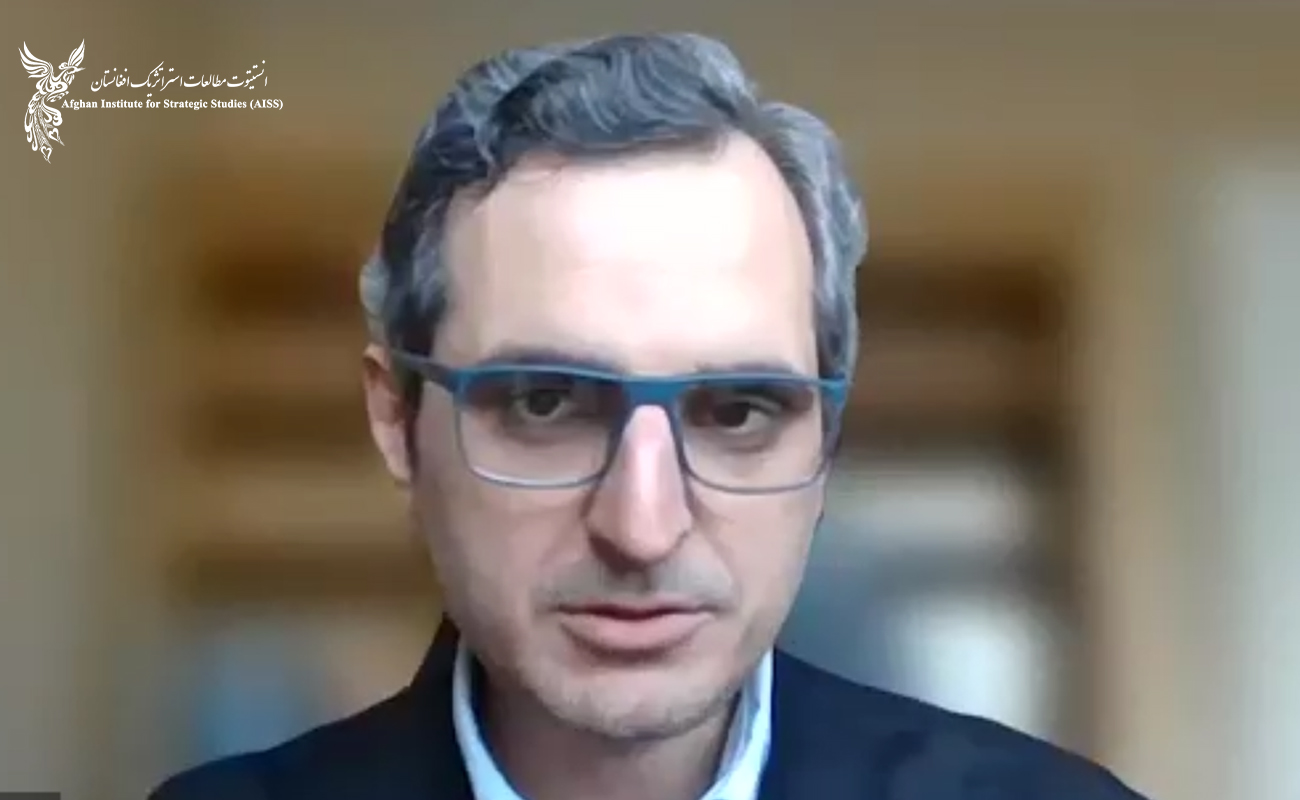Insights from the AISS Zoom Webinar on the Doha Conference and Afghanistan’s Path Forward
On February 29, 2024, the Afghan Institute for Strategic Studies (AISS) hosted a significant Zoom webinar to deliberate on the Doha conference and chart a course for Afghanistan’s future. Esteemed panelists participated in this high-level discussion, shedding light on critical issues. The distinguished speakers included:
Ms. Manizha Bakhtari: Afghanistan’s Ambassador to Austria
Ms. Mahboba Seraj: Renowned women’s rights activist and participant in the Doha conference
Sir Nicholas Kay: Former UK Ambassador for Afghanistan
Mr. Imtiaz Gul: Head of the Centre for Research and Security Studies (Pakistan)
Annie Pforzheimer: Non-resident fellow at the Center for Strategic and International Studies (CSIS)
Dr. Vladimir Evseev: Head of the CIS Institute (Russia)
Dr. Khalil Shirgholami: Acting Vice President of IPIS (Iran)
The panel was moderated by Mr. Shoaib Rahim, an Associate Professor at the American University of Afghanistan.
Key Insights from the Webinar:
Ms. Mahboba Seraj’s Perspective:
Ms. Seraj highlighted the current deadlock in Afghanistan and underscored the Taliban’s absence from the Doha conference. Their non-participation exacerbates the suffering of the Afghan people.
Drawing lessons from history, she cautioned against repeating the mistakes made during the Bonn conference. Engaging the Taliban constructively is essential.
Ms. Seraj emphasized that supporting individuals from the previous regime could backfire, both with the Taliban and among the Afghan populace.
Ms. Manizha Bakhtari’s Views on Women’s Rights:
Ms. Bakhtari addressed the women’s rights situation in Afghanistan. While acknowledging the positive steps taken during the Doha conference based on the UN special envoy’s report, she expressed reservations about the operational feasibility of some proposed mechanisms.
She raised concerns about UNAMA’s perceived bias in favor of the Taliban, cautioning against normalization that could perpetuate terror and suppression.
The failure to establish a meaningful UN-Taliban relationship based on UN principles was also highlighted.
Dr. Imtiaz Gul - Pakistan’s Position:
Initially, Pakistan welcomed the Taliban and prioritized its relationship with Afghanistan.
However, the Taliban’s actions have posed significant challenges for Pakistan.
High casualties and increased terrorist activities after the Taliban takeover have strained relations.
Pakistan aligns with the UN’s pursuit of finding a middle ground while navigating restrictions on women’s rights in Afghanistan.
Dr. Vladimir Evseev - Moscow’s Policy:
Russia criticized the Doha conference for yielding no tangible results.
Despite being an essential opportunity for dialogue among regional, international, and Afghan authorities, the conference fell short.
The US’s use of Afghanistan as a channel against Russia adds complexity to the situation.
Ms. Annie Pforzheimer - US Policy and Geo-Political Shifts:
The overall lack of interest in Afghanistan within the US is a partisan phenomenon.
Anticipate minimal changes after the upcoming election.
The UN’s role as a crisis leader aligns with US comfort.
Leverage with the Taliban requires a united and coherent voice, best embodied by the UN.
Amb. Nicholas Kay - EU-US Consensus and UN Responsibility: Ambassador Nicholas Kay provided valuable insights on the EU and US consensus regarding the Afghanistan crisis and the path forward. His remarks shed light on the delicate balance between constructive engagement and the role of the United Nations:
Constructive Engagement: Within the EU, there exists a general consensus favoring constructive engagement with the Taliban.
UN’s Role: Ambassador Kay expressed reservations about relying solely on the UN to solve Afghanistan’s complex issues. He likened this approach to a “hospital pass,” emphasizing the challenging burden placed on the UN.
Internal, Regional, and Geopolitical Divisions: Acknowledging the need for reconciliation, he highlighted the long process required to account for internal, regional, and geopolitical complexities.
Taliban Dialogue: A strong and united support for the UN special envoy could compel the Taliban to engage in dialogue.
Dual Diplomacy: The international community should use both diplomatic channels: engaging with the Taliban on humanitarian, counter-terrorism, and migration issues while also holding them accountable for human rights violations.
Gender Apartheid: Listing gender apartheid as a crime against humanity is crucial.
Dr. Khalil Shirgholami - Iran’s Position:
Direct Impact: Iran closely monitors developments in Afghanistan due to direct implications for its security and humanitarian concerns.
Realistic Approach: Iran acknowledges the Taliban’s reality in Afghanistan and prioritizes a peaceful and inclusive government.
Influence Strategy: Isolating the Taliban would hinder Iran’s ability to influence them. Dialogue is essential.
Final Remark: The panel concluded with Dr. Shirgholami’s insightful perspective.
Summary: Afghanistan’s Complex Path Forward
UN Process Challenges:
The UN-led peace process faces hurdles:
The Taliban’s avoidance of key talks.
Balancing internal, regional, and geopolitical divisions.
Ensuring a coherent approach to engage the Taliban and to affect behavior change.
Taliban’s Hardline Position and Threats to Rights:
Pessimistic about the Taliban engaging the international community on issues of human rights, women’s rights and inclusive governance which would threaten the continuation of humanitarian aid and further compromise the population’s access to basic resources.
The women of Afghanistan fear a rollback of hard-won rights if the Taliban gains more influence.
Regional vs Western camps lacking consensus
A certain level of rivalry and distrust between regional and western camps on the UN process which requires further consolidation
Without a unified position from other country’s, the Taliban will continue on their current trajectory and no change of behavior change

